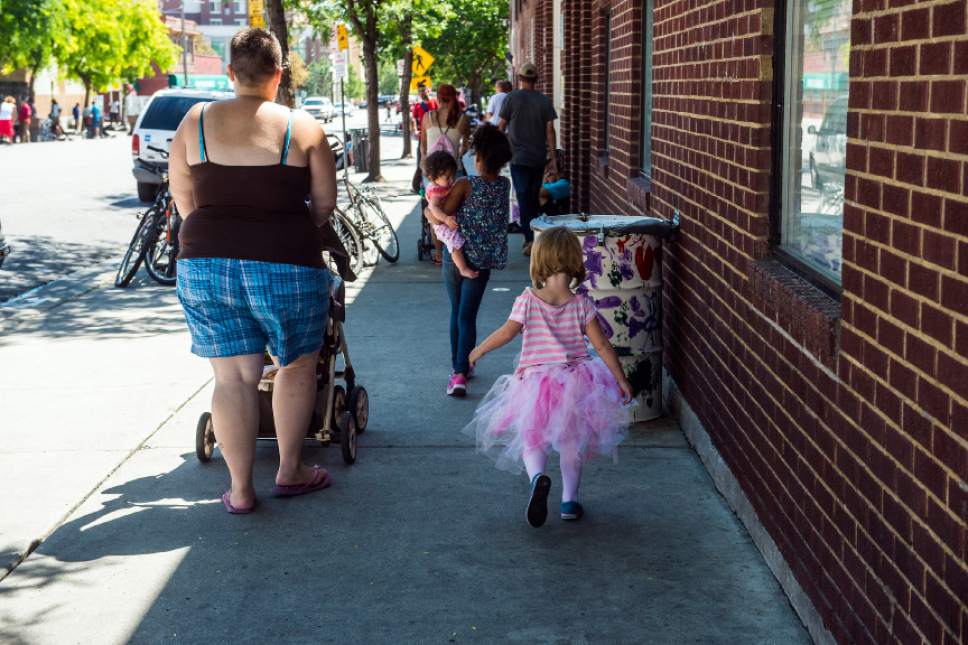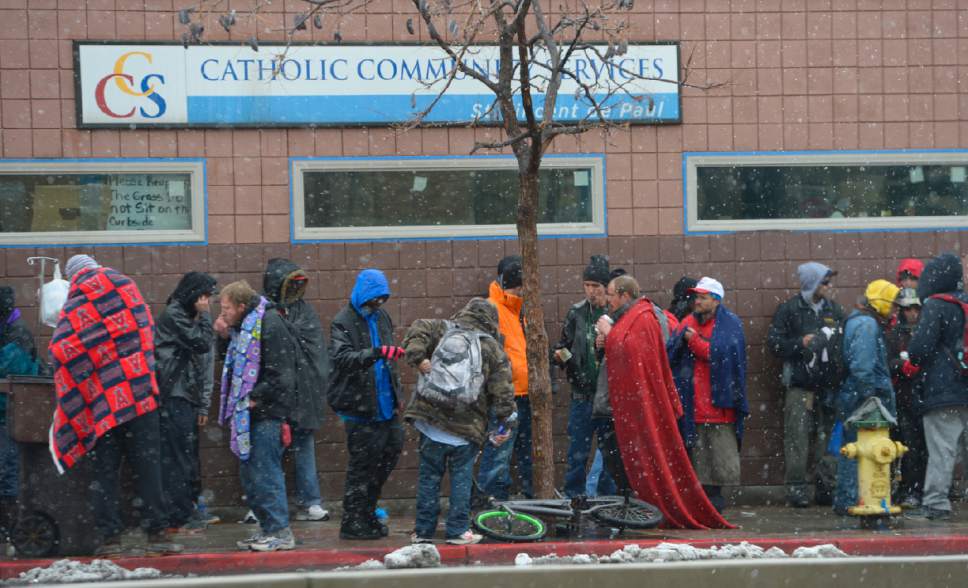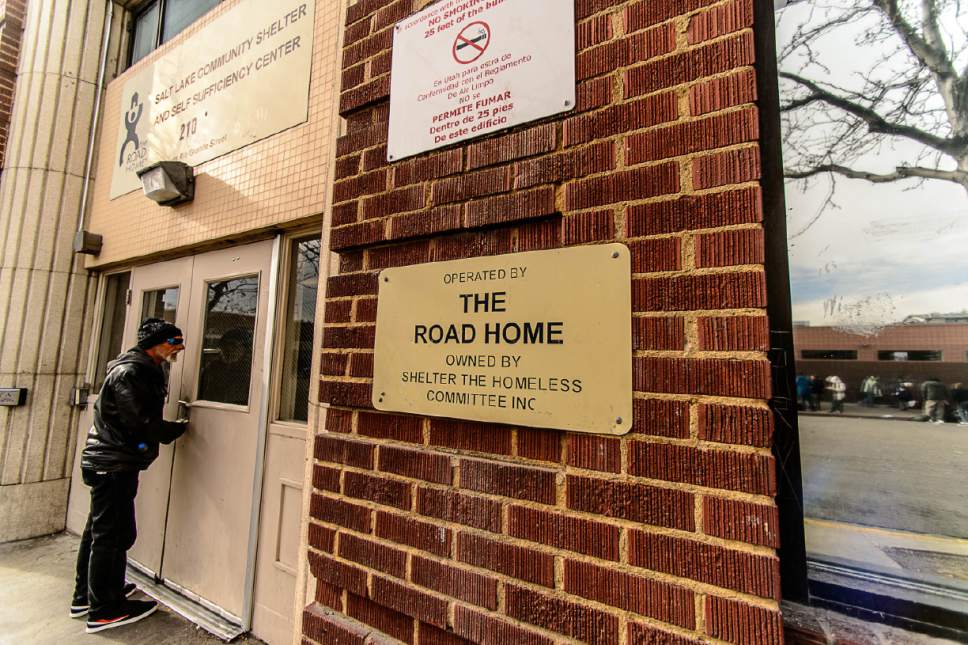This is an archived article that was published on sltrib.com in 2016, and information in the article may be outdated. It is provided only for personal research purposes and may not be reprinted.
City and county leaders support a reduction in beds and eventual closure at The Road Home's downtown homeless shelter as four 150-bed resource centers are constructed.
The shelter currently houses up to 1,100 people — 500 more than the capacity of the proposed shelters. But officials say they expect rehousing and treatment efforts to whittle down the need for the controversial facility located south of the Gateway shopping mall on Rio Grande Street.
Mayor Jackie Biskupski and the City Council were expected to pass a joint resolution to shutter the downtown shelter, and a nonprofit that leases the building to The Road Home, voted Nov. 22 in favor of a future sale.
The vote by the board of the nonprofit Shelter the Homeless Inc. was to approve a nonbinding letter of intent for a sale to the city's Redevelopment Agency.
Salt Lake County Mayor Ben McAdams, a board member of the property-owning nonprofit, had said as early as September that the new shelters and programs would eliminate the need for the downtown shelter.
Until Monday, however, Matt Minkevitch, executive director of The Road Home, had said the facility would remain open with a smaller population after the new shelters were opened.
Minkevitch didn't return a request for comment Tuesday. In a statement distributed by a public-relations agency, The Road Home said, "[w]hile the City and County plans are being developed and until the need is met in a new way, we will continue to provide shelter at the Salt Lake community shelter location."
Shelter the Homeless' board includes political and business leaders, including McAdams, Biskupski, her deputy chief of staff, David Litvack, Lt. Gov. Spencer Cox and two other representatives from the state. Its president is Harris Simmons, chairman and CEO of Zions Bancorporation.
McAdams said that members aspire to sell the shelter and to support additional resources that meet the need. The nonprofit's most recent tax filing indicates that The Road Home paid about $300,000 in 2015 to rent its property, valued at $11.3 million.
McAdams said he expects a simultaneous drawdown in beds at The Road Home equal to new beds that come open at the four sites.
"There's a difference between closing the facility and reducing the demand for the facility to the point where it can be closed," he said. "One thing that I think we need to be cautious of is we can't close a facility and send hundreds of people to the street. We have to have a place for them."
Said City Councilwoman Lisa Adams: "We think there will be a place for everyone."
New facilities are expected to provide comprehensive services that include mental-health and substance-abuse treatment and job-skills training, part of an effort that officials believe will get homeless people off the streets.
Former Mayor Rocky Anderson said Tuesday that such a construct paints "a very rosy scenario."
"I don't know how you go from serving 1,100 to serving 600," he said. "I'd be thrilled if it works out, but they need a contingency plan because they are cutting beds dramatically."
The Road Home's downtown shelter is near its 1,060-person capacity, as is its 300-bed shelter for families in Midvale, which is not being phased out.
But the main shelter's presence in the Depot District frustrates property owners. Pioneer Park Coalition, an organization led by business interests and developers, has sought the closure of what the coalition's Scott Howell calls a "haven of drug manufacturing and sexual predators."
"We're grateful for what The Road Home has done all these years, but, you know, they have a management style that's reflective of the '60s and '70s," Howell said.
Its demise signals a "new day," for the area, said coalition spokesman Dave Kelly. "It's right on the cusp of being the area it could be."
In February, Arizona-based Vestar bought The Gateway, and has announced that it plans to invest up to $100 million in the mall.
Jason Mathis, executive director of Downtown Alliance and member of the Salt Lake Chamber, said he doesn't believe Vestar had inside knowledge, but that local leaders gave it their assurances that the situation would improve.
"I told them, 'Look, make this investment now. This is a good thing: We know this is a problem and we're all working very diligently toward solutions.' "









